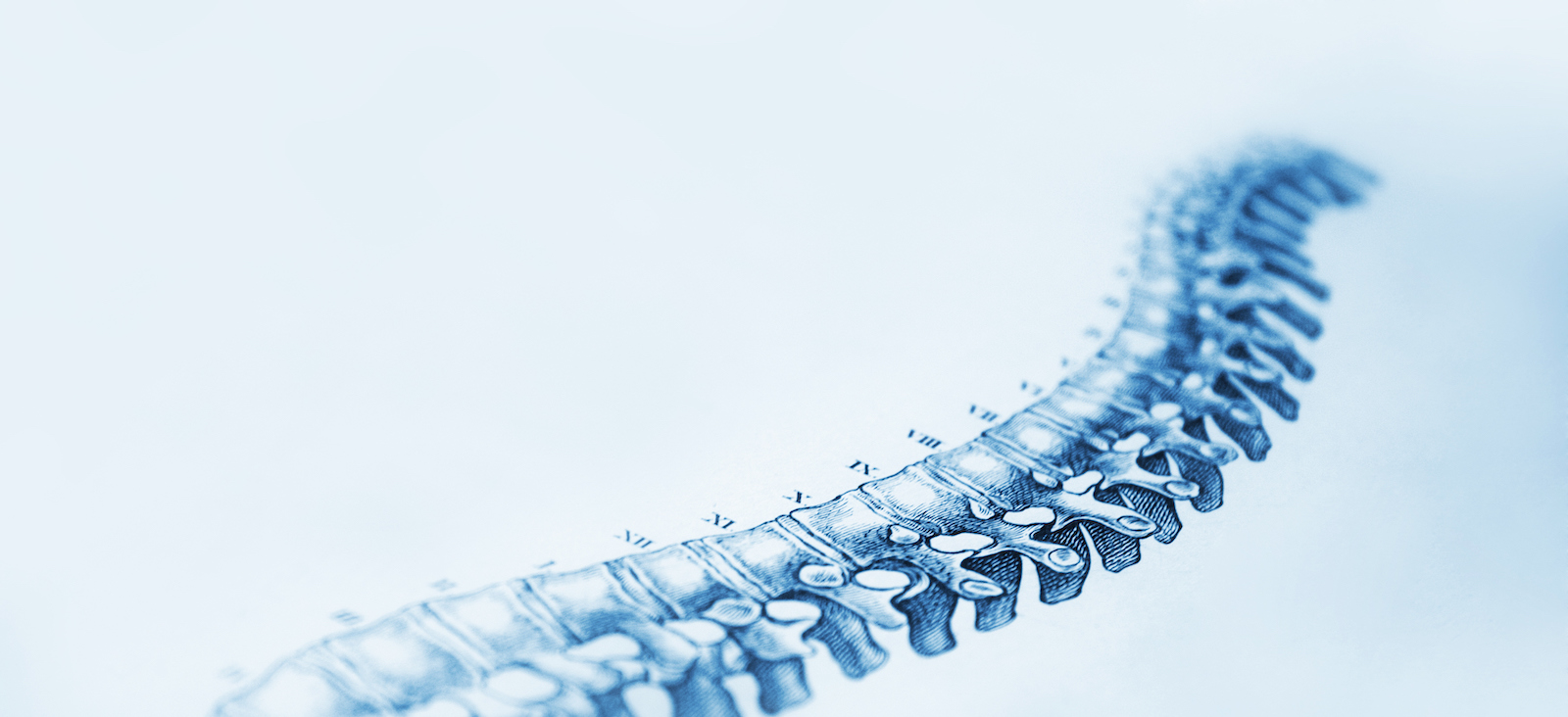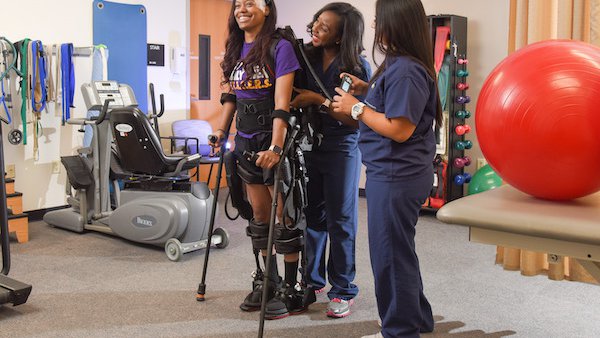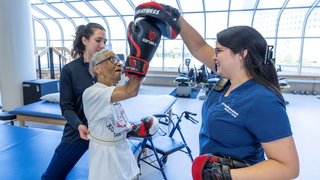The Peter O’Donnell Jr. Brain Institute brings together transformative research and patient-centered care to improve the lives of patients today and those of generations to come.
Moderate to severe SCIs require emergency care to treat life-threatening problems, prevent further spinal cord damage, and monitor potential complications.
Acute spinal cord injury is an emergency, and our team of medical professionals works quickly to stabilize the patient, immobilize the head and spine, and minimize secondary damage.
Emergency care usually requires stabilization surgery, which reduces compression of the spinal cord by removing fragments of bone and realigning the spine.
Patients often require intensive care for management of spinal shock, which affects blood pressure and heart function.
Depending on the injury and presentation, removable braces are used to restrict movement of the spine and control its position at times. We also work to prevent secondary complications of hospitalizations such as blood clots, lung and bladder infections, pressure ulcers, and constipation.








